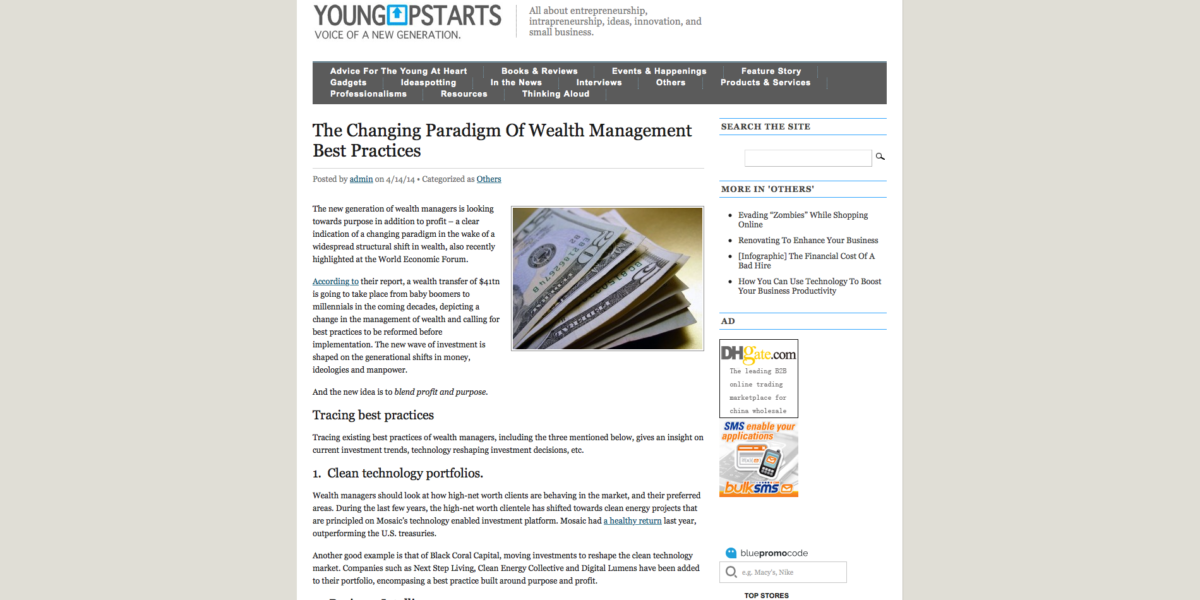
The new generation of wealth managers is looking towards purpose in addition to profit – a clear indication of a changing paradigm in the wake of a widespread structural shift in wealth, also recently highlighted at the World Economic Forum.
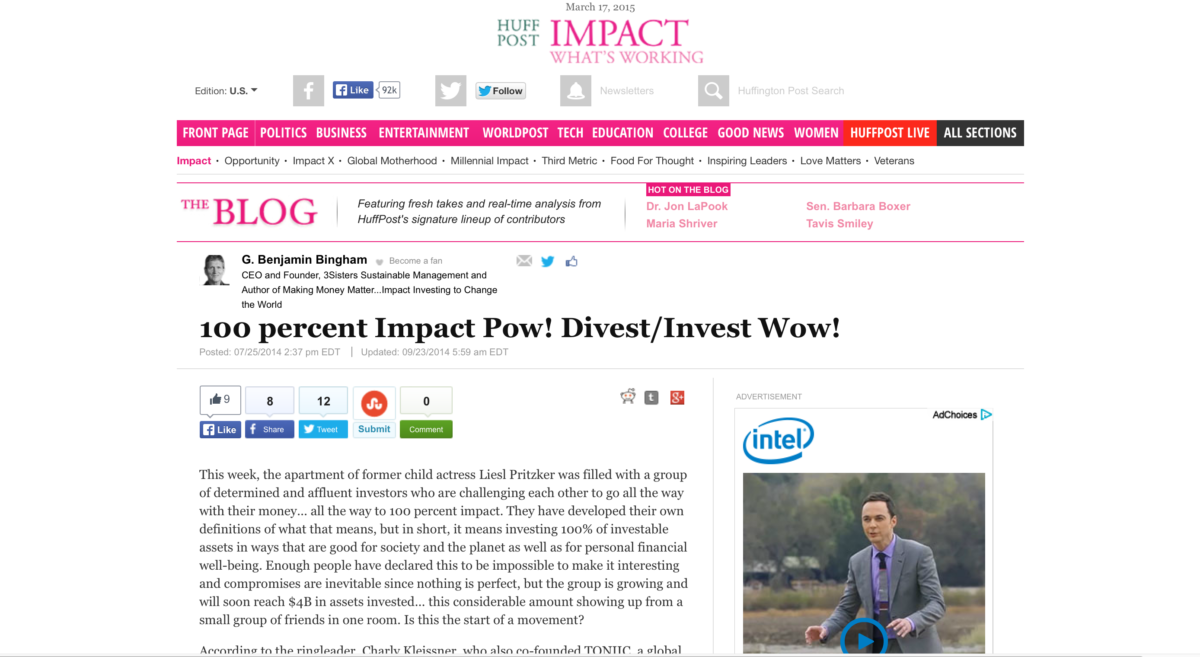
Today, about one billion people worldwide are malnourished. The same number lack access to clean water, and over 10% of children receive no education. Yet the world will grow by at least two billion people over the next 30 years — the equivalent of more than 80 new Shanghais. Changes of this scale present us with immense new challenges and equally vast opportunities.
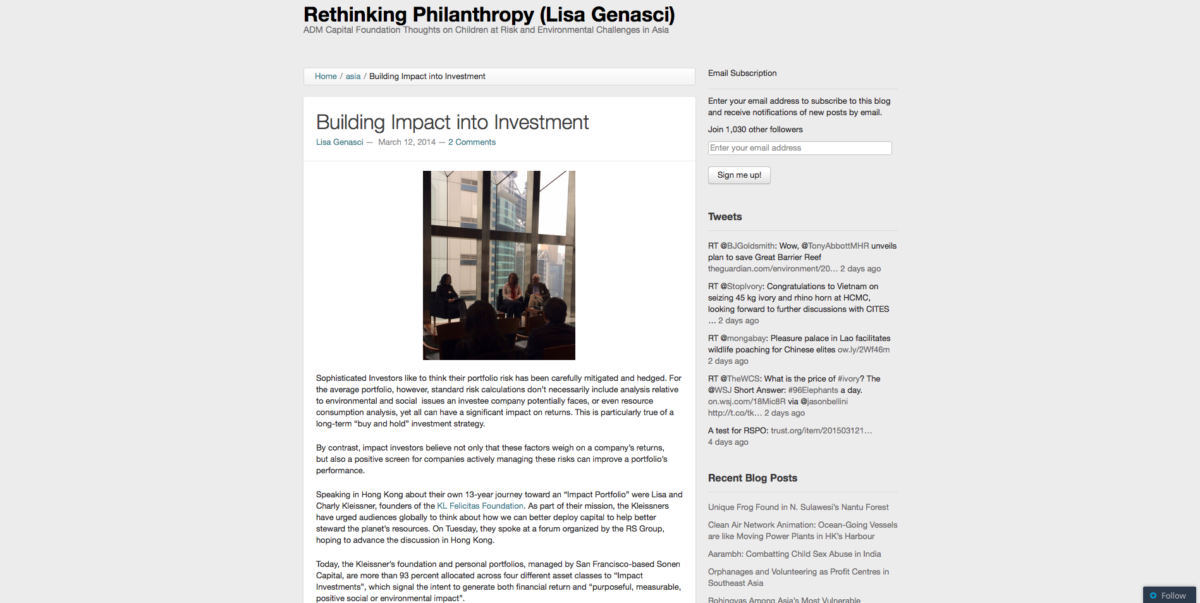
Sophisticated Investors like to think their portfolio risk has been carefully mitigated and hedged. For the average portfolio, however, standard risk calculations don't necessarily include analysis relative to environmental and social issues an investee company potentially faces, or even resource consumption analysis, yet all can have a significant impact on returns. This is particularly true of a long-term "buy and hold" investment strategy.
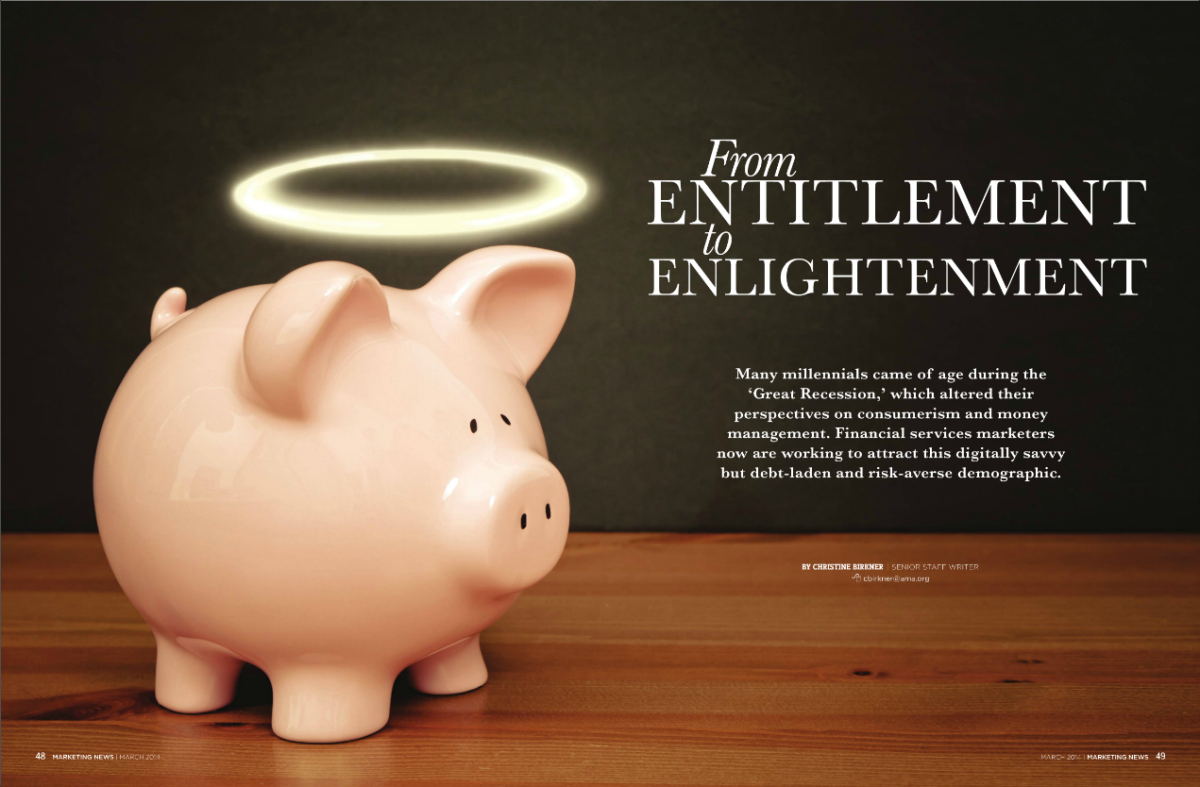
Many millennials came of age during the ‘Great Recession,’ which altered their perspectives on consumerism and money management. Financial services marketers now are working to attract this digitally savvy but debt-laden and risk-averse demographic.
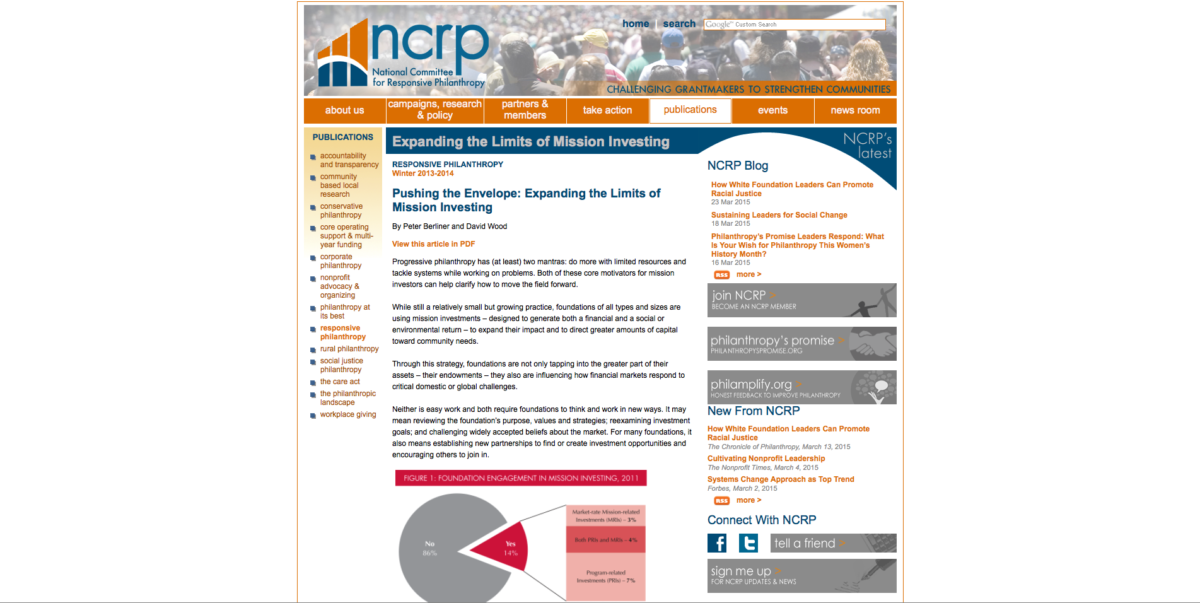
Progressive philanthropy has (at least) two mantras: do more with limited resources and tackle systems while working on problems. Both of these core motivators for mission investors can help clarify how to move the field forward.
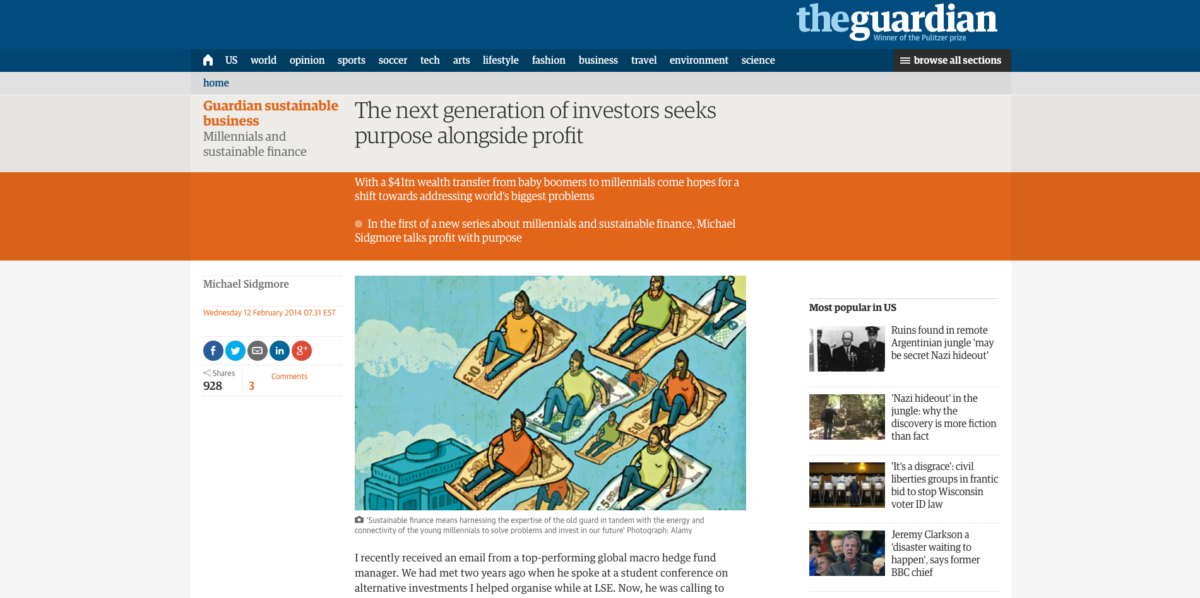
I recently received an email from a top-performing global macro hedge fund manager. We had met two years ago when he spoke at a student conference on alternative investments I helped organise while at LSE. Now, he was calling to learn about the peer-to-peer lending industry.
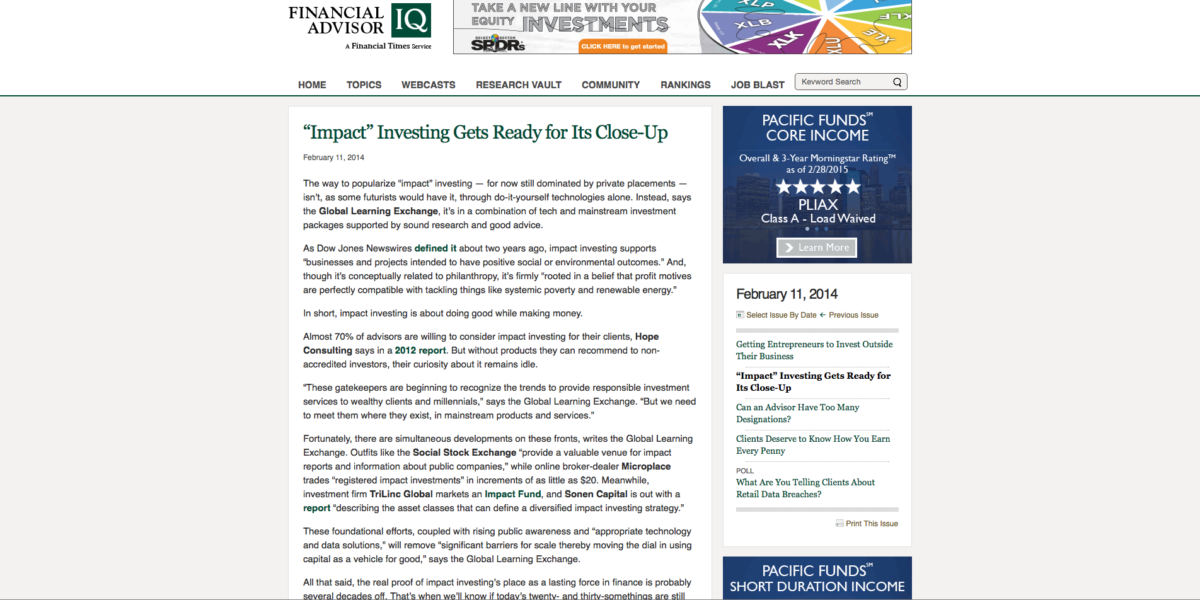
The way to popularize “impact” investing — for now still dominated by private placements — isn’t, as some futurists would have it, through do-it-yourself technologies alone. Instead, says the Global Learning Exchange, it’s in a combination of tech and mainstream investment packages supported by sound research and good advice.
101 Montgomery Street
Suite #2150
San Francisco, CA 94104
+1 (415) 534-4444
info@sonencapital.com